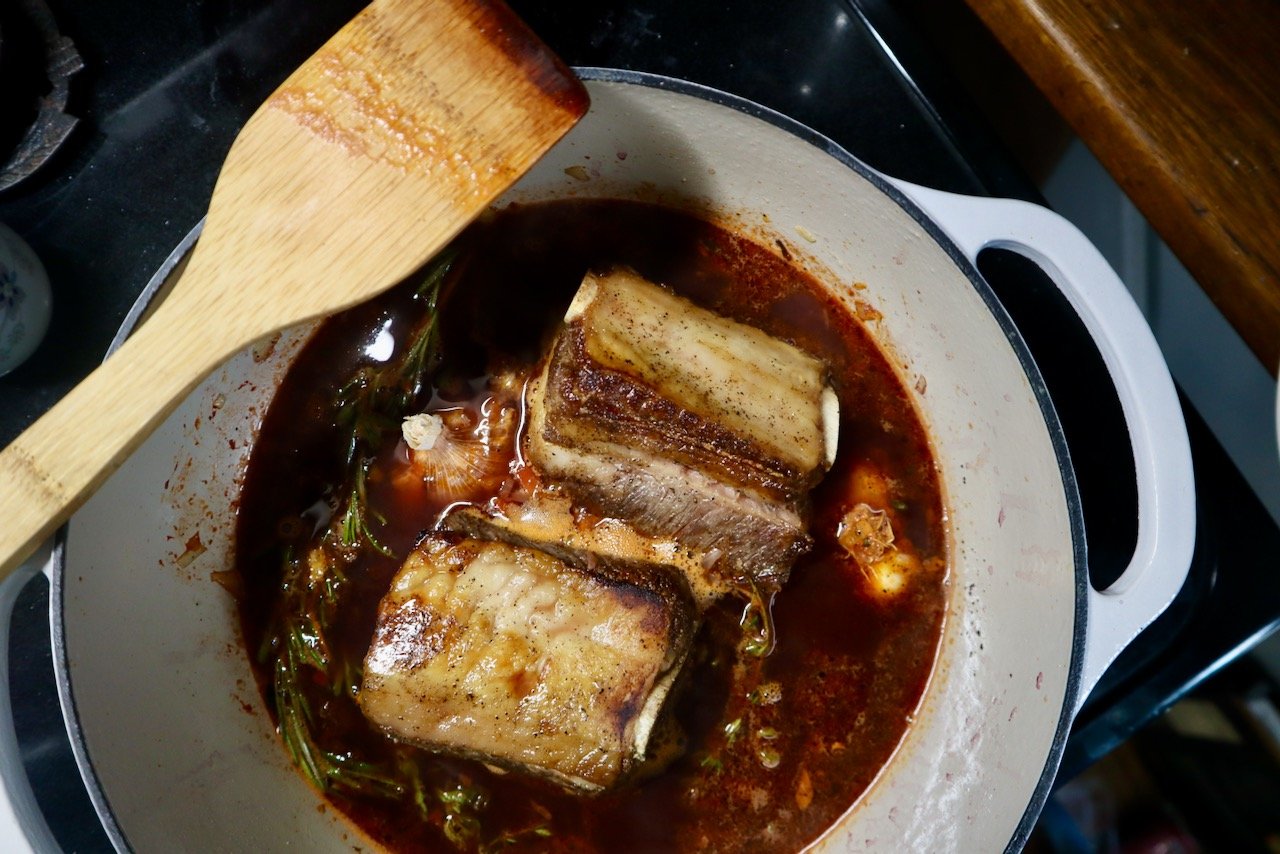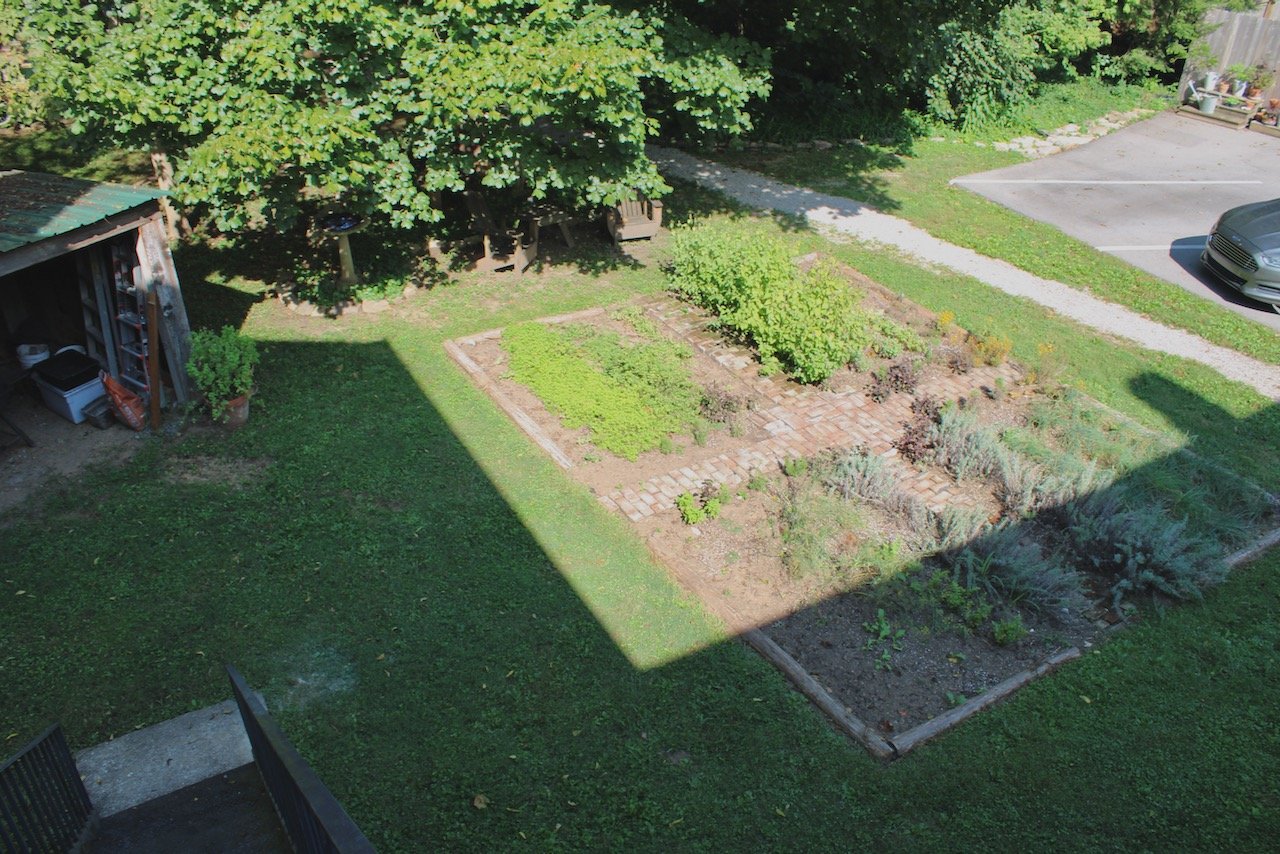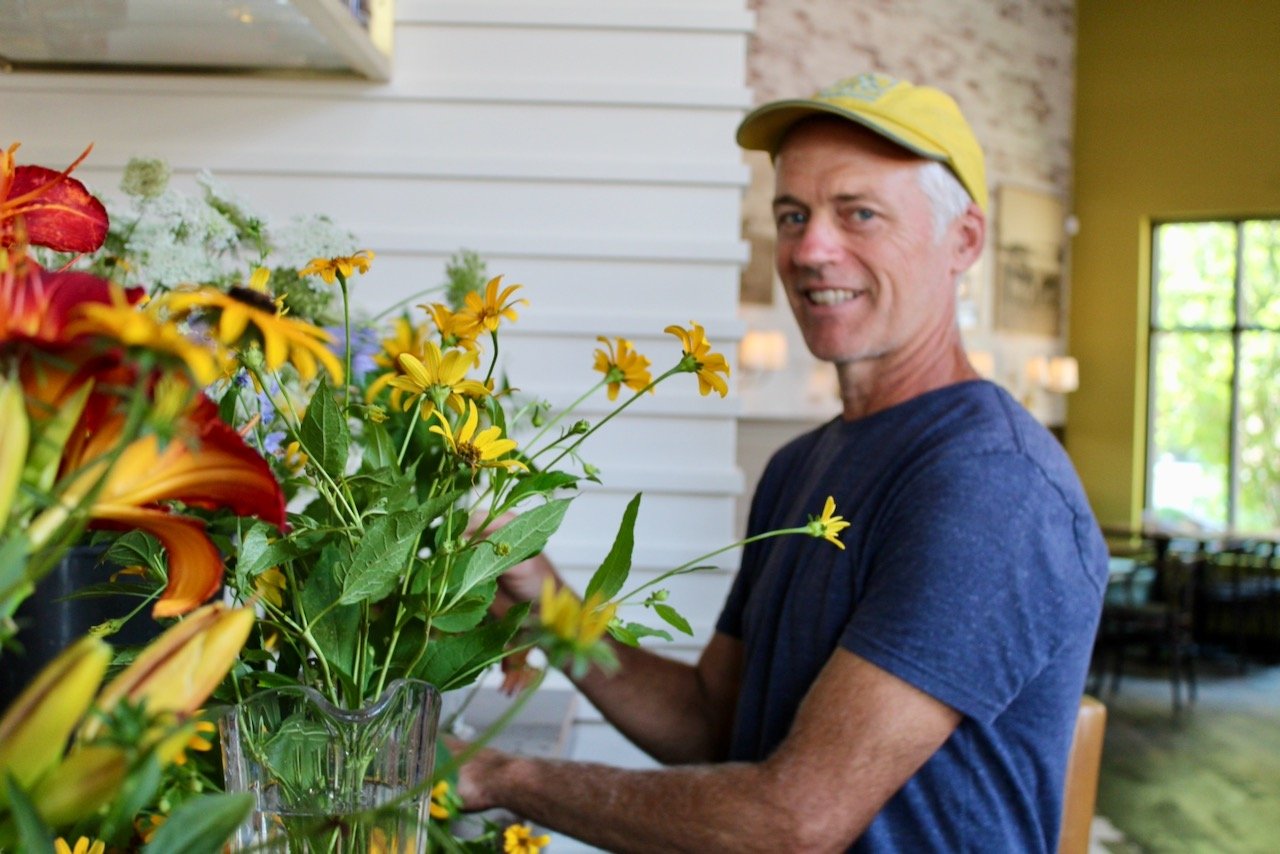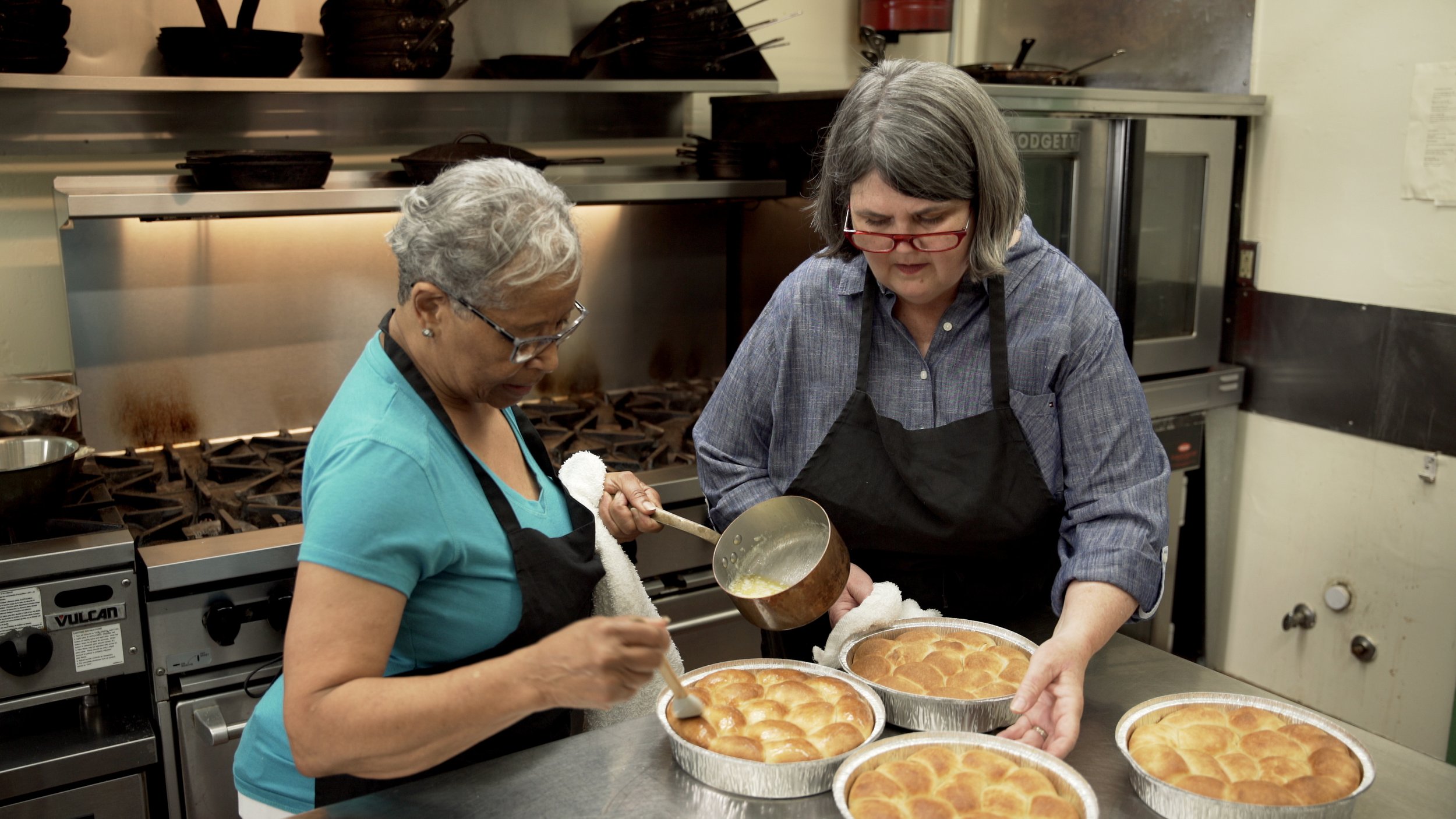Our Bouquet Garni
story by Donna Hecker & photography by Talitha Schroeder
Chef Ouita Michel has a song in her head. Parsley, Sage, Rosemary and Thyme. The refrain from Simon & Garfunkel’s classic hit Scarborough Fair has played on repeat the last few years as we learned the lessons a handful of herbs could teach us.
Bouquet garnis are traditionally made by tying herbs and other aromatics together with kitchen twine and have long been used by chefs and home cooks to season soups, stews and other dishes.
Our bouquet garni flavors everything we do. In March 2020 when Covid-19 kicked us on our heels, the promise of new life brought us back to our feet. We chose the bouquet garni as the perfect illustration of our heightened focus on Kentucky’s food culture – and how our stories add to its richness and connect us with one another.
Gardening had been on our minds for years at Holly Hill Inn but it took a pandemic to get the idea out of our heads and firmly planted in the soil. Our dream came to life with the vision and guidance of our longtime farming partner, David Wagoner. It was a process of reuse, rehabilitation, and rebirth.
When we introduced our new Holly Hill identity, with the challenges of 2020 and 2021 still fresh, Chef Ouita wrote that the “gardens are a true way of coping with frightening change by reminding us of the simple beauty found quite literally in our front yard.”
“The herb garden is especially meaningful for me: I love how herbs are medicinal, beautiful, and flavorful all at the same time. The small blooms of the marigold tarragon, small lavender stems of purple buds – they make moments in the herb garden, and then the kitchen, feel special.”
We’d always had a scruffy kitchen herb garden outside the back door, where the chefs tossed discarded oyster shells after marathon shucking sessions. David enlarged the beds and replaced muddy mulch pathways with old bricks salvaged from a chimney sent tumbling down by a lightning strike. New herbs and edible flowers were added – anise hyssop (a sleeper hit), pansies, lovage and fennel.
David brought our flower beds to life, turning a shade garden into one suited for full sun when its sheltering trees were felled by a summer storm. He tilled up land for a vegetable garden in Chris and Ouita’s backyard and the chefs picked out new and heirloom varieties of seeds to plant. A tea garden was filled with chamomile, mint, lemon balm, scented geranium, yarrow and calendula.
For David, a landscape architect turned family farmer, his work at Holly Hill Inn “has become foundational to my life as a farmer. For the last 20 years, I’ve found it so satisfying to have the fruits and vegetables of my labor find their way into the kitchen, season after season.”
“And now, gardening on the grounds at the restaurant itself has brought me deeper into knowing the place, its history, its people, and has challenged me to step up my horticultural game to do justice to the place.”
Chef Ouita responds that “for chefs, the connection to beauty and to agriculture is deeply inspiring. It alleviates the stress of a professional kitchen and reconnects us all to the love of what we do.”
For the rest of us, it’s revelatory to walk the grounds of Holly Hill Inn and see how David’s work recalls the restaurant’s early days as Hermosa, a family homeplace capable of sustaining a small community. It’s our living connection to those who came before us, whose care of the land and toil upon it made it possible for us to continue their legacy.
illustration by David Wagoner
Growing advice from David Wagoner –
Start small and keep it simple.
It will be easier to succeed and feel encouraged, and you can continue to expand each year.
Your garden can be a few pots or a few beds.
Scale your garden to your appetite – for growing, harvesting and eating.
It is good to keep your plants growing well by watering and weeding them.
Then eat them all up, leaving no surplus.
From Wendell Berry –
If you have a yard, or even just a porch box or a pot in a sunny window, grow something to eat in it. Make a little compost of your kitchen scraps and use it for fertilizer. Only by growing some food for yourself can you become acquainted with the beautiful energy cycle that revolves from soil to seed to flower to fruit to food to offal to decay, and around again. You will be fully responsible for any food that you grow for yourself, and you will know all about it. You will appreciate it fully, having known it all its life.
From his collection of essays: What Are People For?
And finally, from us –
If a vegetable garden seems intimidating, or you’d like to try something different; we suggest planting a tea garden. Here’s what you’ll find in ours. All these plants can be used fresh or dried. They make great teas, tisanes, infusions, poultices and syrups.
Wild bergamot, various mints, yarrow, calendula, scented geraniums, lemon balm, lemon verbena, hyssop, chamomile, sweet woodruff, sweet marjoram.
© 2022, Holly Hill Inn/Ilex Summit, LLC and its affiliates, All Rights Reserved
Related Content
The Measure of Her Worth
Freda Raglin is 100% genuine. We can’t resist the pull of her stories or the lingering aroma of her famous yeast rolls or the realization that Freda is a self-taught culinary genius. Her innate skill and ability to create delicious dishes by taste and touch are a treasure worth preserving.








